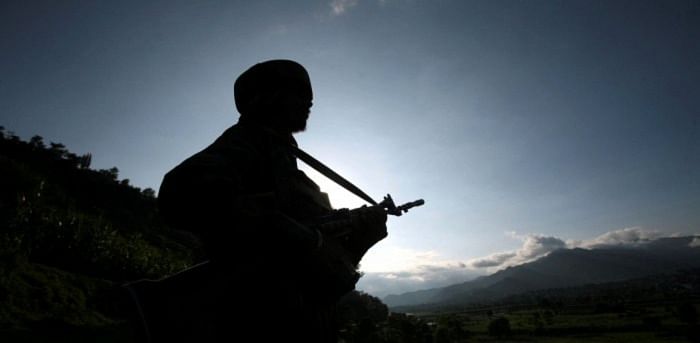
Lt Gen Subrata Saha, a former Deputy Chief of the Indian Army, was the GOC of Srinagar-based 15 Corps. He commanded a Brigade along the Line of Control in High altitude area in Kashmir. In the Northeast, he has commanded an Infantry Battalion in Assam and served as Commandant of the Assam Regimental Centre in Shillong. The General Officer who served 40 years in the Army and served extensively in Jammu and Kashmir, Punjab, and the Northeast – areas that have been under jurisdiction of AFSPA – shared his thoughts on the controversial legislation with DH’s Kalyan Ray. Excerpts:
Why does the Army need the AFSPA?
It is not about whether Army needs the AFSPA, it is first about whether the area is disturbed or not. Once a place has been declared 'disturbed' and the government decides to deploy the Army, AFSPA enables the armed forces to function effectively in securing stability in the area declared as disturbed. Once the Central government is of the opinion that an area is in such a disturbed and dangerous condition that the use of armed forces in aid of the civil power is necessary, the Central government declares the area to be ‘disturbed area’ for a defined period and reviews the situation accordingly for further extension.
It's a gross misrepresentation that AFSPA is an ‘Army-specific’ legislation. Once an area is disturbed, provisions of AFSPA are applicable to other security forces deployed in the disturbed area as well.
Read Special Story: Cry for AFSPA repeal gets louder
Has a time come to review it?
There are Supreme Court directions, based on which from time-to-time guidelines have been made and various Standard Operating Procedures (SOPs), Dos and Don’ts, promulgated. These are a part of the process of review and application of the Act.
Every time an unfortunate incident occurs, rather than helping to stabilise the situation, there is a clamour for revocation of the AFSPA, without understanding whether the situation on the ground is conducive to say that the area is no longer ‘disturbed’. The hype that is created around AFSPA is driven more by vested political interests.
In all the ongoing situations of insurgency, on multiple occasions the situation has been stabilised militarily. Once the military situation is stabilised, it is incumbent that the political initiatives become predominant, and the area should eventually be no longer considered to be disturbed. We have seen such examples of revocation in Punjab, Tripura, Mizoram, and Meghalaya.
How are incidents like the one that happened in Nagaland?
In the statements that have been made by the Home Minister in Parliament and by several others along the chain, it was announced that an interagency SIT has been ordered. Also, the Army has ordered a Court of Inquiry led by a Major General. These probes will investigate: (a) the circumstances under which the incident has happened, pinpoint responsibility, and (b) recommend measures to prevent recurrence of such incidents. The SIT has been given one month to submit its report. Quite evidently, the answer to this question is what the probes are looking into. At this juncture, it is in our national interest to see that the peace process is not allowed to be derailed by vested and adversarial interests, both internal and external.
Also read: Naga peace process: Misplaced optimism?
There are hundreds of alleged AFSPA violation cases against Assam Rifles – are all of them false?
You can’t have a generic answer to this question, it will depend on the merit of each allegation. These cases as you perhaps know are under investigation by various legal, and quasi legal bodies. Even as these investigations progress, it is important that the situation in Assam which is well under control and Nagaland that was heading towards resolution, should not be allowed to regress. Peace, stability and economic development must be paramount in the political discourse.
There is a perception that armed forces officers and personnel generally get away with incidents like the one that happened in Nagaland – is that correct?
It is a highly misplaced perception. The armed forces are there to fulfil constitutional responsibilities and act as per the law of the land. Wherever failure has been established, action has been taken. There are many instances in Jammu and Kashmir and the Northeast where accountability has been fixed and action taken against erring individuals and for lapses.
Check out DH's latest videos:
